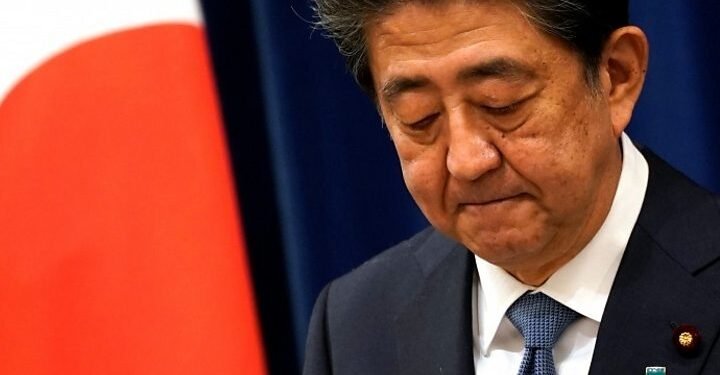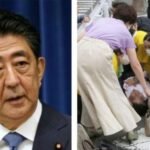Japanese Prime Minister Shinzo Abe on Friday announced his resignation. Abe said he had decided to resign because of illness.
Japanese financial markets were roiled in the afternoon trade on Friday after news that Japanese prime minister Shinzo Abe will resign for health reasons broke.
NIKKEI 225 closed 1.41% down.
U.S 30 futures is up by 0.45% and U.S 500 futures is up by 0.32%.
FTSE 100 is up by 0.19%
On the other hand, the US dollar index was down by 0.5%, after the Japanese yen (one of the biggest weights in the basket) jumped. The yen was up by 0.5% on Friday and has strengthened to the 106 yen per US dollar mark.
The Abe development hit markets as investors were still coming to terms with an overnight move by US Federal Reserve to shift its policy framework by placing more emphasis on boosting economic growth and less on worries about letting inflation run too high.
- Read also; Nigeria’s Manufacturing Sector Contracts in August for the fourth consecutive months
- Why International Flights resumption was postponed
In a news conference in Tokyo, Abe told reporters that he had been “struggling” with his health, which had begun to deteriorate in mid-July, and he was ready to call time on his leadership of the world’s third-largest economy.
“My poor health should not lead to wrong political decisions,” he said. “As I’m no longer able to meet the expectation of the mandate of the people of Japan, I have decided that I should not stay in the position as prime minister anymore. So I have decided to step down.”
Abe is known to have battled chronic ulcerative colitis, and public broadcaster NHK reported that medical tests conducted Aug. 17 showed that his condition had worsened. Alternative medicine was prescribed when Abe returned to the doctor a week later but the prime minister was told treatment would take a year, the broadcaster reported.
Abe, 65, is Japan’s longest-serving leader, having overseen a period of relative stability in a nation previously known for frequent leadership changes. He began his current term after a landslide victory in 2012, following an earlier stint as prime minister in 2006-07
Having witnessed his 2,799th day in office Monday, Abe had just become the nation’s longest-serving prime minister in terms of consecutive tenure.
Written by;
Ifunanya Ikueze
























































